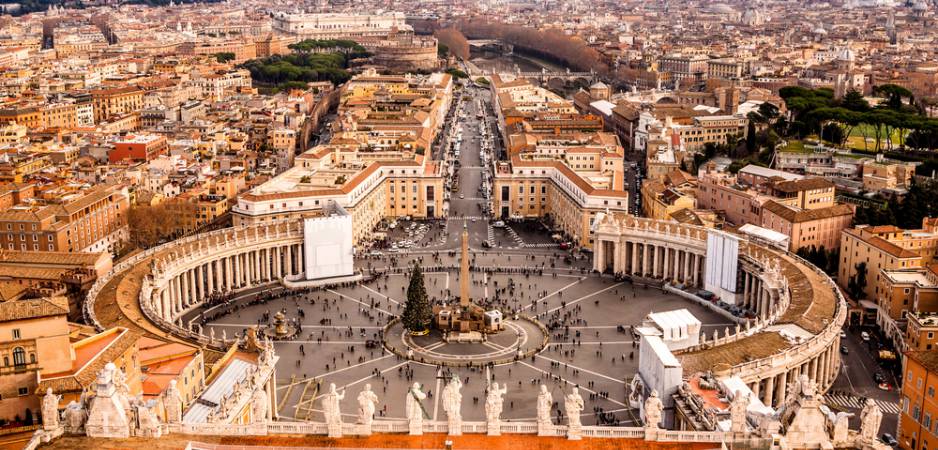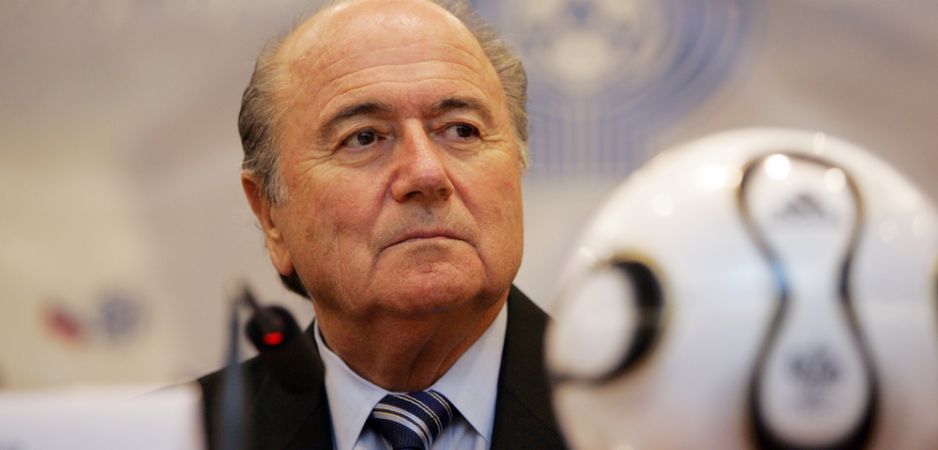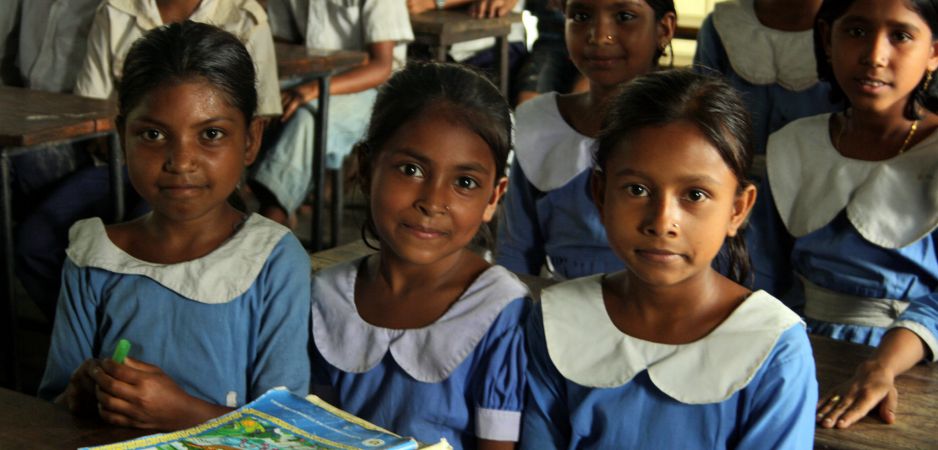As Ireland embraces Satanic love, the Catholic Church chafes under its barefoot Argentine pope.
The Catholic Church has long opposed abortion, contraception and homosexuality. Some argue that this doctrinal certitude has been a key reason for its success. Everyone knows what the Catholic Church stands for and it claims the allegiance of over 1.3 billion people. The Vatican presides over the most successful institution of all time. Zeus and Odin are dead. The Vestal Virgins who once pardoned Julius Caesar have vanished. The Catholic Church has taken their place and is still going strong.
Yet all is not well in “the world’s oldest multinational” whose CEO is supposed to be “Christ’s representative on Earth.” Ireland, where the Catholic Church once withstood the wrath of Oliver Cromwell, is straying from the fold. In a country where homosexuality was illegal until 1993, 62% voted in favor of legalizing gay marriage. This is the first time that such legalization has occurred via popular vote. The institution that jailed Galileo Galilei and burned Giordano Bruno is aghast.
Cardinal Pietro Parolin, the Vatican’s number two, declared that Ireland’s vote was “a defeat for humanity.” Parolin was “deeply saddened” by the result and believes it is time for the Catholic Church to “strengthen its commitment to evangelization.” Cardinal Raymond Leo Burke, the former head of the highest court at the Vatican, finds the Irish “defiance of God” incredible. Speaking at an event organized by the Newman Society of the University of Oxford, Burke declared the Irish vote to be more depraved than the practice of “pagans” who tolerated homosexual behaviors but never dared to say this was marriage. For Burke, homosexual marriage “is a work of deceit” and comes from Satan himself.
After years of cultural hegemony, the Catholic Church is losing ground in its own backyard. At stake are fundamental values such as marriage. Paragraph 1644 of the Catechism of the Catholic Church affirms the unity and indissolubility of marriage. As per paragraph 1652, the purpose of marriage is “the procreation and education of the offspring.” Most religious people from different faiths would agree, but few institutions have such legalistic and detailed definitions about how people should live. The institutionalization and homogenization enforced by the Catholic Church is now under threat.
In countries like Ireland, people are now more laissez faire about how to live. The purpose of marriage is now associated with companionship and love. Sex is increasingly considered a jolly good thing and is associated more with pleasure than with procreation. Besides, in an overcrowded world of over 7 billion people, finding a job and doing well in a career is tough. Women are increasingly doing better than men in school and desire sexual pleasures without the risk of impregnation. Men also want such pleasures without the responsibility of fatherhood.
Modern parenthood is more intentional. People lead busy lives and invest more in their children. Hence, they have fewer progeny so that they can give them greater attention, care and love. Moreover, parents no longer intend to abjure carnal pleasures when they cease to have children. Attitudes to sex are changing around the world. Truth be told, Burke might be onto something. Zeus, Odin and other pagan gods might be dead, but pagan values might be making a comeback in the land named after Europa.
Changing values in Old Christendom are causing convulsion in the Catholic Church. As Der Spiegel reports, Jorge Mario Bergoglio, the Argentine Jesuit better known as Pope Francis, is creating confusion in an institution run by old European men. Bergoglio comes from the land of the Perons and is the first non-European to be the CEO of the world’s biggest, oldest and richest multinational. It is important to remember that Bergoglio is the big boss because over 50% of Catholics now live south of the equator, mainly in Latin America and Africa.
Bergoglio’s actions indicate that he has been influenced or, in the words of his detractors, defiled by “liberation theology.” This was popularized by Latin American Catholic priests who set out to interpret the “Christian faith out of the experience of the poor,” and their critics labeled them as Christianized Marxists. Yet since the 1950s, many members of the Catholic Church in the land of the conquistadors have tried to deal with the poverty that ravages their land and are inspired by Jesus’ rebellion against the status quo. Tellingly, Bergoglio has declared Óscar Arnulfo Romero y Galdámez, the former archbishop of San Salvador who was assassinated for speaking out against poverty, injustice and torture, to be a martyr. Romero, a pin-up hero of the Latin American left, is now an official saint of the Catholic Church.
To the discomfiture of many, Bergoglio is playing a far more political role than his predecessors. He has stressed upon the dignity of man and the right to work. For him, the current economic system excludes many from wages and bread. In Bergoglio’s words, “such an economy kills.” The Argentine has also negotiated a rapprochement between Cuba and the United States, described Turkey’s actions against Armenians of the early 20th century as genocide and recognized Palestine as an independent state. Bergoglio is also cracking down on corruption and cliques inside the Catholic Church. He has taken on the closeted network of gay prelates and intriguing insiders in the aftermath of the Vatileaks scandal. The Curia, the top ranking officials of the Catholic Church, do not know what to make of this “barefoot pope” and fear that Bergoglio might be the Mikhail Gorbachev of their Kremlin-like state.
As Bergoglio seeks to reform an old institution, Sepp Blatter is fighting for continuity at a relatively new one. FIFA, the institution that governs football or what the Americans call soccer, is in trouble. The Justice Department of the United States indicted nine FIFA officials and five corporate executives for racketeering, conspiracy and corruption. Attorney General Loretta Lynch declared corruption in FIFA to be “rampant, systemic, and deep-rooted” and to span “at least two generations” of FIFA officials. As per the Justice Department, officials have taken over $150 million in bribes and kickbacks.
Despite the scandal, Blatter, who has been in power since 1998 and is a sprightly 79, won a fifth consecutive term, defeating Prince Ali bin Hussein of Jordan. Europe and Latin America, the traditional powerhouses of football, voted against Blatter. Africa and Asia rallied to his defense. Blatter insinuated that he was a victim of an Anglo-American conspiracy because England lost its 2018 World Cup bid to Russia and the US lost its 2022 bid to Qatar. Russian President Vladimir Putin concurred.
Blatter is shady. FIFA is corrupt. Yet the rest of the world is not as outraged as the Brits or the Yanks because they believe that Blatter and Putin might have a point. Neither the UK, nor the US is trusted and regarded to have a reputation for probity. British Prime Minister David Cameron is seen as a “mendacious” Etonian who presides over a country that lives off the billions that the likes of Roman Abramovich steal from their native lands. The US is perceived to be an unjust land that locks up a third of its black men but fails to convict rich white bankers who rob billions. They suspect that Anglo-Saxon outrage over Blatter arises from pique and envy.
It is important to remember that Blatter has won or bought support in the emerging economies by supporting football in poor and underprivileged areas. The football association of Burundi has the same vote as that of England, the birthplace of football. In some ways, FIFA is more democratic than the United Nations because it does not give any one country’s association veto rights. However, just as decolonization has been messy and corrupt, the democratization of football has led to patronage and kickbacks. The fundamental problem in football is that there is too much money in too few hands. This means that those with wealth get what they want.
In England, the likes of Abramovich can buy the best coach and the finest players from around the world. In Brazil, corrupt officials and private companies conspired to ensure that the 2014 World Cup cost an arm and a leg. In England, the Premier League is now the Roman Circus of the modern world and local players struggle to get a break in the face of overseas talent. In Brazil, taxpayers have been left with a staggering bill and local players have to leave for foreign shores to achieve their potential.
The truth is that football is run by cosseted elites. Those from emerging economies are Mafiosi who do not bother about the rules. Those from rich countries are slick crooks who hire expensive Harvard lawyers to work around the law or manipulate it. Blatter is smart enough to pit these two elites against each other and generate enough support to continue his reign. Ugly people run the beautiful game.
*[You can receive “The World This Week” directly in your inbox by subscribing to our mailing list. Simply visit Fair Observer and enter your email address in the space provided. Meanwhile, please find below five of our finest articles for the week.]
[seperator style=”style1″]India-China Relations Advance by Inches, Not Miles[/seperator]
Following his trip to China, Modi has talked about advancing India-China relations by “miles.”
Where do relations between New Delhi and Beijing stand following Indian Prime Minister Narendra Modi’s visit to China? Pretty much the same as before. The trip did little to alter the pattern of heightened strategic competition and modest economic engagement that began to congeal in late 2014.
Modi’s journey was preceded by undue optimism among some in the Indian commentariat that a transformation in bilateral affairs might be in the offing. In this telling, the tandem of Modi and Chinese President Xi Jinping — decisive and pragmatic leaders who are both undertaking ambitious economic reform programs at home — would be able to drive relations toward some sort of breakthrough. Indian Foreign Minister Sushma Swaraj contributed to this speculation a few months ago, when she ventured that the leadership in both countries had the “political will to think out of the box” to find a solution to the long-simmering Himalayan… Read more
[seperator style=”style1″]The Future of Hydropower[/seperator]
Given the strains climate change is putting on the planet’s limited resources, what role can hydropower play in the future?
The Three Gorges Dam in China is the largest hydroproject in the world. Spanning 2.4 kilometers across the Yangzee River in Hubei Province, the dam captures 84.7 terawatts per hour (TWh) annually. China is, in fact, the world’s largest producer of hydroelectricity, generating 687 TWh in 2011, which accounts for 15% of China’s total electricity production. Hydropower actually makes up 6% of China’s total energy mix — more than both natural gas and nuclear power — and the Chinese government plans to increase its output to 325 gigawatts (GW) by 2015. For a country that is also the largest emitter of carbon dioxide, hydropower is a vital source of clean energy that can help Beijing combat the pervasive pollution that blankets many major Chinese urban centers.
China is one of the many countries eager to take advantage of their natural topography to tap a clean… Read more
[seperator style=”style1″]When Corruption Becomes Oppression in Bangladesh[/seperator]
Maria Khwaja Bazi explores the systemic corruption hindering the effectiveness of educational investment at a Dhaka school.
A city of 16 million people, Dhaka is an assault on the senses. In April 2014, we whizzed through traffic behind the caged door of a rickshaw to visit a small private school. After a few training sessions, the teachers and I sat around a table, fans whirring overhead, and discussed the biggest issues they faced.
Bangladesh, famous in the development world largely for Grameen Bank, Mohammed Yunus and BRAC, struggles from many of the same issues as most developing countries with regard to education: lack of teacher training, low salaries and motivation, absenteeism, poor resources, unreachable rural areas and a lack of resources. Predictably, when sitting around a table with several teachers, the majority of complaints revolved around the rights and position of teachers.
“We only make $100-300 per month in government schools,” the art teacher said, “and in private it can be as low as $25.” Read more
[seperator style=”style1″]The New Politics of Globalization[/seperator]
How can democracy be reconciled with globalization, asks former Irish Prime Minister John Bruton?
In his book, Supercapitalism: The Transformation of Business, Democracy and Everyday Life, Robert Reich argues that the technologies developed to fight the Cold War — computers, software, telecommunications and super-light alloys, along with containerization and cheap transport — opened up previously closed markets to global competition.
This has meant that the effective control of economics is no longer exercised by national governments that could be held accountable to national electorates. Rather, it is now exercised at a global level where competitive forces are much stronger than democratic impulses. The forms of democracy remain, but the substance has moved elsewhere.
As goods and services can be sourced anywhere in the world, competition between firms is now more intense than at any point in history. As Reich sees it, competition has drowned out other concerns. Human needs, such as job security, now take second place in many firms, which are more focused on achieving… Read more
[seperator style=”style1″]Myanmar is the Latest Destination for Fast Fashion Producers[/seperator]
As Myanmar opens up after decades of isolation, cheap labor is drawing a rush of garment manufacturers to the former pariah state.
Just five years ago, Myanmar was isolated from the rest of the world. Considered a pariah state, the Southeast Asian nation was ruled with an iron fist by a military junta with no regard for human rights.
US-led international sanctions ensured that few Western firms did business in the country — although illicit smuggling meant that globally recognized brands such as Coca Cola could be found in the capital Yangon — and just a smattering of garment manufacturers, fulfilling limited overseas orders, maintained a presence there.
Yet winds of change were blowing. The release of pro-democracy leader Aung San Suu Kyi from house arrest in 2010 and a transition to a reformist, although still military-dominated, government aided the easing of trade embargoes by 2012.
In 2011, the number of garment factories had grown to 200, from 120 the previous year, and the country… Read more
The views expressed in this article are the author’s own and do not necessarily reflect Fair Observer’s editorial policy.
Photo Credit: Kojoku / S-F / Shutterstock.com
 We bring you perspectives from around the world. Help us to inform and educate. Your donation is tax-deductible. Join over 400 people to become a donor or you could choose to be a sponsor.
We bring you perspectives from around the world. Help us to inform and educate. Your donation is tax-deductible. Join over 400 people to become a donor or you could choose to be a sponsor.
Support Fair Observer
We rely on your support for our independence, diversity and quality.
For more than 10 years, Fair Observer has been free, fair and independent. No billionaire owns us, no advertisers control us. We are a reader-supported nonprofit. Unlike many other publications, we keep our content free for readers regardless of where they live or whether they can afford to pay. We have no paywalls and no ads.
In the post-truth era of fake news, echo chambers and filter bubbles, we publish a plurality of perspectives from around the world. Anyone can publish with us, but everyone goes through a rigorous editorial process. So, you get fact-checked, well-reasoned content instead of noise.
We publish 2,500+ voices from 90+ countries. We also conduct education and training programs
on subjects ranging from digital media and journalism to writing and critical thinking. This
doesn’t come cheap. Servers, editors, trainers and web developers cost
money.
Please consider supporting us on a regular basis as a recurring donor or a
sustaining member.
Will you support FO’s journalism?
We rely on your support for our independence, diversity and quality.













Comment